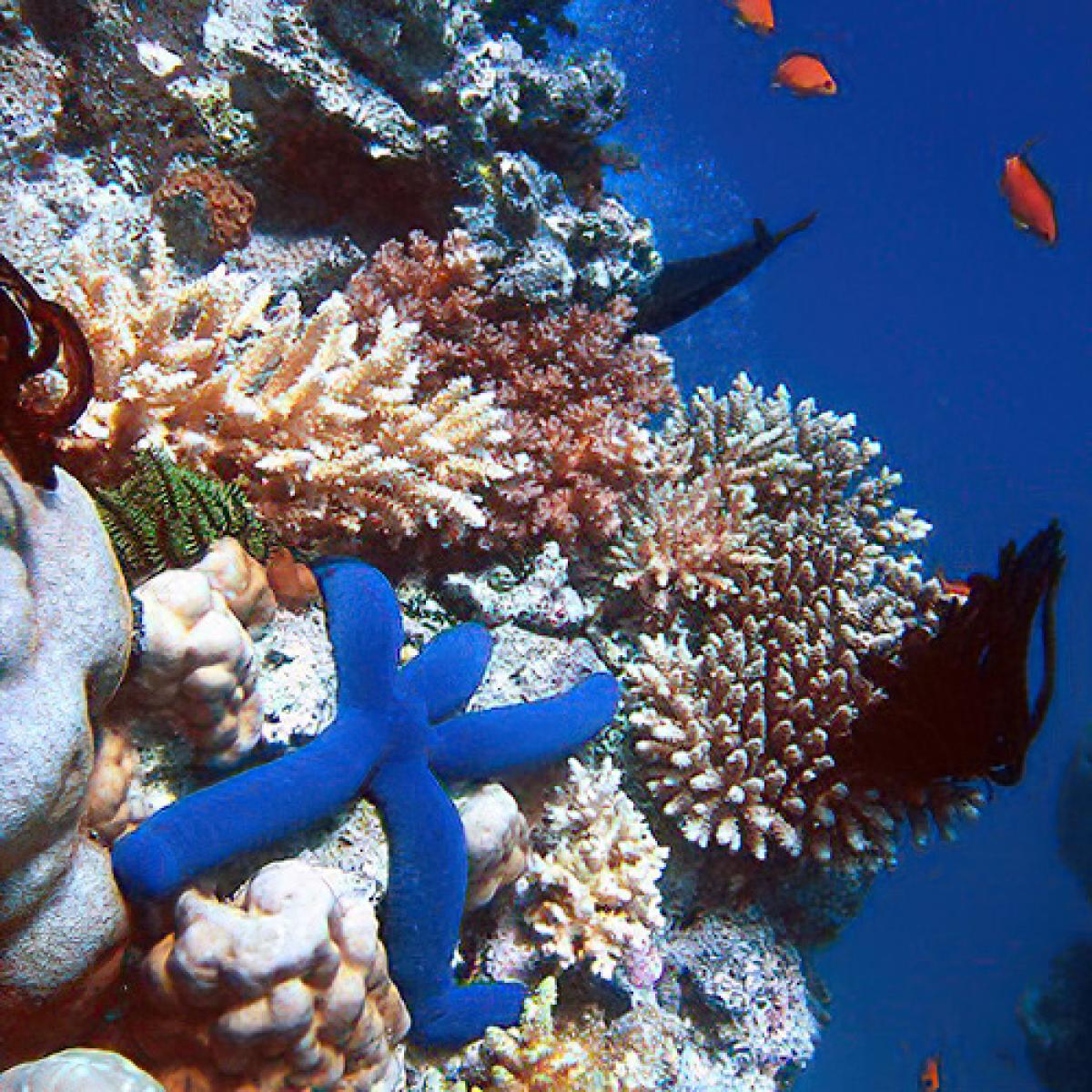Are coral reefs dying?
Submitted by
JasperGrade level
6Answered by
Dr. BiologyYes, many of the coral reefs in the ocean are struggling and suffering from what scientists call bleaching. You can think of coral bleaching as a warning sign that something isn't right in the ocean. When you look at a healthy coral, it is made of both the coral animal and its partner algae. Corals and algae are like best friends. They live together and help each other out in what we call a mutualistic relationship. The algae provide the corals with some of their food through a process called photosynthesis, and the corals give the algae a safe place to live. But when the ocean water gets too warm, corals get stressed out. It's like when you're too hot and sweaty on a summer day. In response, the corals ask their algae buddies to leave, and that's when the corals turn pale or bleached looking.
When corals lose their colorful algae, they become weak and can be at risk of dying. It's a bit like losing your protective powers – you feel tired and can't do all the amazing things you used to. The corals might even get sick because they're not as strong as before. Sick or dead coral reefs can impact more than the corals because they are like bustling underwater cities, and many sea animals call them home. When corals bleach and get sick, it's not just bad for them – it's bad for all the other animals that rely on them for shelter and food.
El Niño and coral reefs
There are also years when there are unusually warm waters in the Pacific Ocean. This can increase the bleaching rates of coral reefs. With global temperatures rising El Niño years can be even more difficult on corals. If you want to learn more about this effect, you can read our PLOSable story called Hot Flashes in the Ocean.
Many scientists are working hard to understand why coral bleaching happens and how we can help. One of these scientists at ASU is Greg Asner. He has an amazing flying laboratory that lets him study coral reefs from the air. If you want to learn more about his work, you can listen to our podcast episode called High Flying Science.
What you can do to help coral reefs?
You can be a coral superhero. By taking care of the Earth, using less energy, avoiding using throw away plastics like grocery bags, and switching to reef-safe sunscreens, we can help corals reefs and the other animals that live in the ocean. Remember, both large and small actions can make a difference for our underwater coral reefs.
Bibliographic details:
- Article: Are coral reefs dying?
- Author(s): Dr. Biology
- Publisher: Arizona State University School of Life Sciences Ask A Biologist
- Site name: ASU - Ask A Biologist
- Date published:
- Date accessed:
- Link: https://askabiologist.asu.edu/questions/are-coral-reefs-dying
APA Style
Dr. Biology. (). Are coral reefs dying?. ASU - Ask A Biologist. Retrieved from https://askabiologist.asu.edu/questions/are-coral-reefs-dying
Chicago Manual of Style
Dr. Biology. "Are coral reefs dying?". ASU - Ask A Biologist. . https://askabiologist.asu.edu/questions/are-coral-reefs-dying
Dr. Biology. "Are coral reefs dying?". ASU - Ask A Biologist. . ASU - Ask A Biologist, Web. https://askabiologist.asu.edu/questions/are-coral-reefs-dying
MLA 2017 Style

Coral reefs could use our help to survive.
Image by Richard Ling Copyright (c) 2004 via Wikimedia CC BY SA 3.0
Be Part of
Ask A Biologist
By volunteering, or simply sending us feedback on the site. Scientists, teachers, writers, illustrators, and translators are all important to the program. If you are interested in helping with the website we have a Volunteers page to get the process started.
